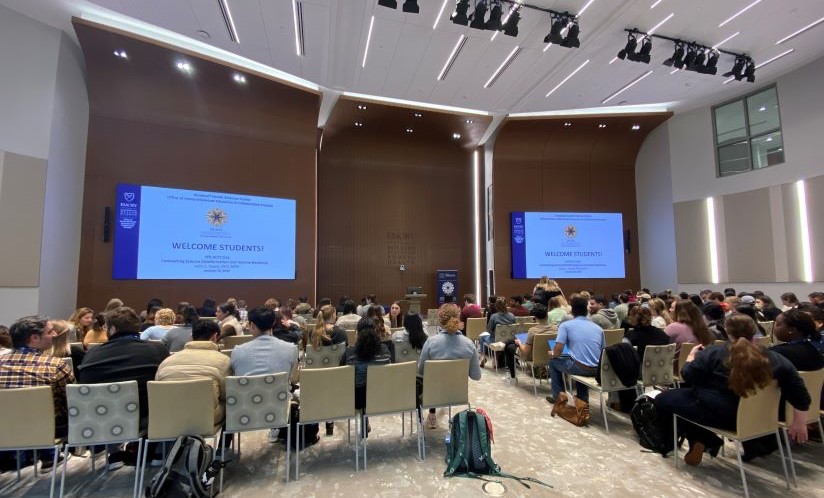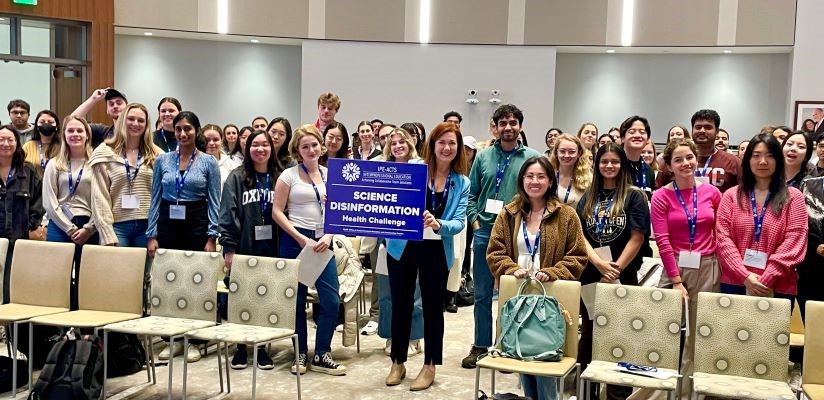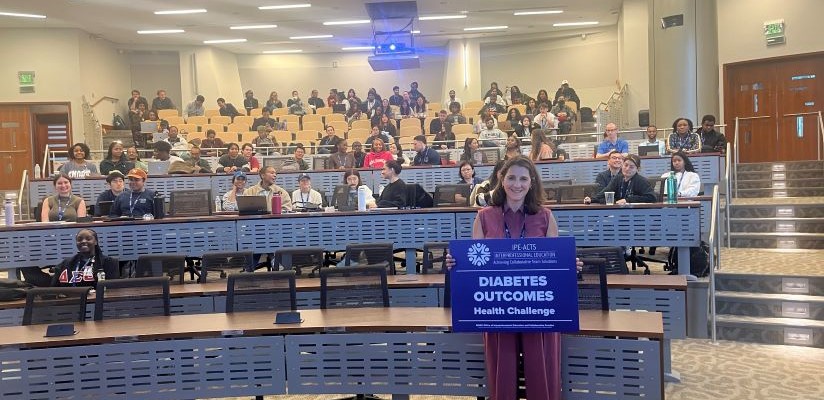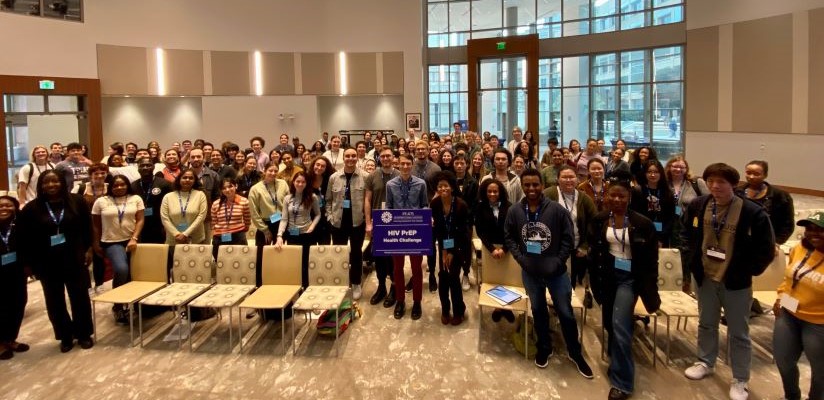Students Practice Interprofessional Skills, Solve Health Challenges in New IPECP Program

This year, the Woodruff Health Sciences Center Office of Interprofessional Education and Collaborative Practice (IPECP) launched a new, innovative training program for first-year health professional students. Interprofessional Education - Achieving Collaborative Team Solutions (IPE-ACTS) brings together students from the Schools of Public Health, Medicine, and Nursing to address critical health challenges in Atlanta.
Jodie Guest, PhD, senior vice chair of the Department of Epidemiology and co-director of IPECP, started developing IPE-ACTS in February 2023. The program is designed to facilitate meaningful engagement among students across the three schools by teaching them interprofessional skills, and encouraging students to apply them to real challenges that affect people’s health.
“Emory is a leader in health professional education. The next step in that is bringing together our students across professions to learn and work together,” says Guest. “This is the largest, and one of the most exciting, programs I have led the creation of at Emory, and it has been tremendous to see it come to life with student engagement.”
The IPE-ACTS Curriculum
Students first completed online modules to familiarize themselves with the key components of interprofessional collaboration and practice before selecting a health challenge of interest. Examples of topics included: adolescent mental health, childhood literacy, science disinformation, and climate justice. Groups were then formed, including students from at least two schools, to work on creative solutions for their health challenge of choice. Their work began on IPE-ACTS Day on January 26, 2024, a kick-off event attended by over 1,300 students where groups met each other, their team advisors, and their faculty champions for the first time.
Faculty champions are an essential component of the IPE-ACTS curriculum who provided comprehensive background information about each health challenge to students at the beginning of IPE-ACTS Day. Among these champions are three Rollins faculty members, including Guest, who are excited to support students in their interprofessional education.
Rollins Faculty Champions

Jodie Guest, PhD
Senior Vice Chair, Department of Epidemiology
Co-Director, Office of Interprofessional Education and Collaborative Practice
Health Challenge: Combating Science Disinformation & Vaccine Hesitancy
“Having worked in many parts of the state with inequitable access or differing uptake in vaccines the past three years, coupled with the rapid uptick in disinformation and changes in the way we consume information, I wanted to blend these together and have our exceptional students think of ways to improve upon these issues. We know science disinformation spreads faster than good information. Finding a way to increase childhood vaccination rates while combatting disinformation, and yet not increasing stigma or distrust, is complicated. I know our students are up to the challenge to think of ways to engage in these topics and positively affect health.”

Ilana Graetz, PhD
Associate Professor, Department of Health Policy and Management
Health Challenge: Reducing Racial Disparities in Outcomes for Type 1 Diabetes
“I know that by more efficiently leveraging technological innovations both in care delivery and diabetes management, we can improve care for all and reduce disparities in outcomes. I gave students the challenge to consider the role of technology and come up with solutions to reduce racial disparities in outcomes for people with type 1 diabetes.”

Aaron Siegler, PhD
Associate Professor, Departments of Epidemiology and Behavioral, Social, and Health Education Sciences
Health Challenge: Increasing the Equitable Provision of HIV PrEP
“I am excited to be in the first cohort of faculty mentors, starting students on their public health journeys by immediately encouraging them to approach public health challenges with critical thinking, creativity, and team-based problem solving.”
Student groups will continue to work together on their health challenge solutions throughout the spring semester, competing against their peers and culminating in a final live presentation from ten finalist teams in April.